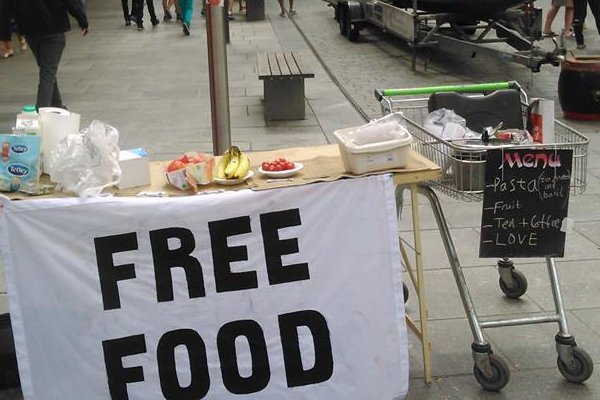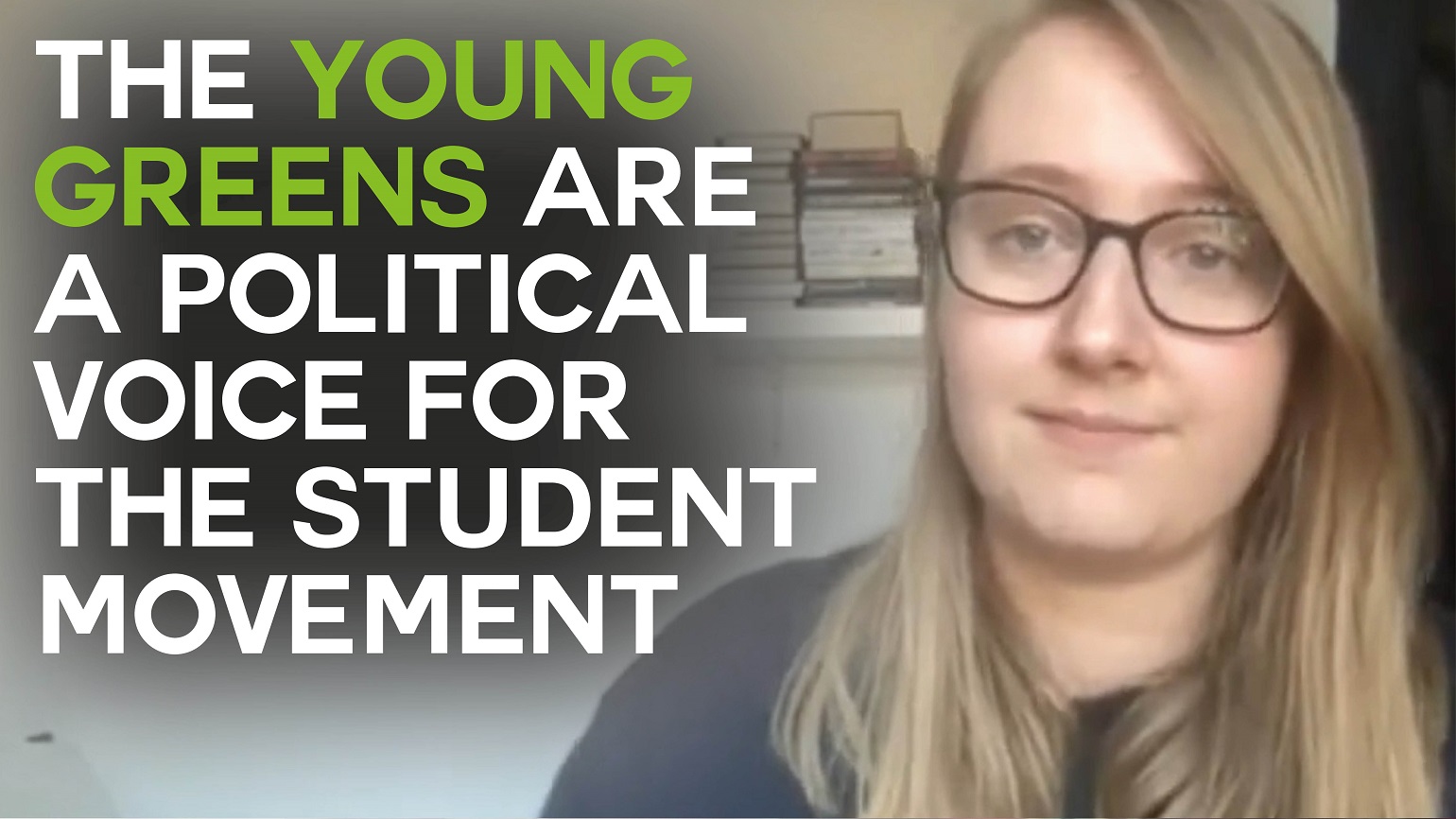Beyond a Tin of Food: fighting food poverty with community action

More people in the UK than in generations are now living on the breadline.
The Trussell Trust’s statistics show a growth from 40,000 people using food banks in 2009 to over a million people this year. It’s no coincidence that this is taking place under a Tory government, backed by the Lib Dems before they were kicked out of office earlier this year, and pitifully barely opposed by the Labour Party.
The political establishment is fanatically committed to a programme of cuts to public services, benefit cuts, zero-hour contracts and squeezing as much out of those in work as possible. Business as usual for the 1%, while everyone else pays the costs for the economic mess they created. Benefit claimants are demonised as lazy, scrounging cheats while migrants are called ‘swarm’ and ‘marauding’.
The situation is bleak, and there’s as urgent a need as ever to fight back. This is why the South West Young Greens (SWYG) have just set up their food poverty campaign, Beyond a Tin of Food. The campaign its name from one organised by vInspired, a charity that provides volunteering opportunities for young people. This charity launched a campaign to raise awareness about food poverty. They collected enough food for over 20,000 meals for those in food poverty.
People are organising around the country in a variety of different groups, on too many issues to list, and the Young Greens are only one small-ish but growing corner of that struggle. The campaign was set up to address one of the most blatant and terrifying consequences of austerity, but the issue goes far deeper than that.
Big business and government have historically always looked out for each other’s economic interests, rarely shying from passing the consequences on to the rest of society even when it has caused famines.
A powerful example of this is the 1770 Bengal Famine. The British East India Company, fast on its way to becoming the de-facto government of India, forced farmers to grow opium instead of food to sell in China. The East India Company later fought the Opium Wars to keep the Chinese market open to them, and opium was pivotal to British imperial control and prosperity. Growing cash crops instead of food was one of the main causes of the famine and it killed 10 million people.
In the late 19th and early 20th centuries, American businesses exploited Central American countries to grow cash crops culminating in the monopoly of a single company United Fruit. United Fruit developed a very heavy influence on the governments of the countries it operated in – the origin of the term ‘banana republic’ to describe the extent of the corruption they caused. Additionally, United Fruit had a terrible impact on the environment, particularly biodiversity, because of their operations.
These are very extreme examples, but they show how capitalism, imperialism and the profit motive itself have all relied on controlling or effectively denying access to food in order for those systems to function.
The explosion in food poverty in Britain is yet another case of an entire society, particularly its poorest, being made to bear the brunt of the costs to keep the economic system afloat.
Beyond a Tin of Food was set up by SWYG because there is an alternative to this. The thrust of the campaign is, rather than to simply lobby the government or raise public awareness, to take more direct and community-level action on the issue of food. One of the community groups the campaign seeks to draw on the experiences of is Exeter Food Fight.
Exeter Food Fight is an anti-capitalist and non-party group, set up at the beginning of 2015 to give out free cooked veggie and vegan meals on Exeter’s high street. People in Exeter have regularly come along to its stalls, cooked for it, donated ingredients, and stopped to chat radical politics. Exeter Food Fight has often provided the catering for events in the city such as the People’s Assembly rally against austerity in June, and an anti-racism march earlier in the year. In July, Exeter Food Fight hosted a summer picnic that brought together people in the community for an afternoon of live music, food and conversation.
It was very much inspired by Food Not Bombs, but the practice of mutual aid at the heart of both is as old as humanity itself. As a political practice, mutual aid was carried out by the Black Panthers in the United States and was a regular feature of the Occupy movement’s camps.
Beyond a Tin of Food seeks to bring together what can be learned from community groups and activists who seek to be political in a way that does not begin and end with the ballot box. Jeremy Corbyn’s election to the Labour Party leadership is something to be optimistic about. But if politics, the economy and society as a whole are to be freed from capitalism and imperialism, it’s going to take much more than that. Beyond a Tin of Food takes the idea of thinking globally and acting locally (clichéd as it is) to heart. Together we can take our first steps towards a world where everyone has enough to eat, a home and the freedom to live full and dignified lives.
The campaign is set to launch in Plymouth on 17th October, at the Annual General Meeting of the South-West Green Party If you want to get involved, poach some ideas for projects where you are or want to suggest projects of your own, come and join the campaign’s Facebook group and get in touch.




Leave a Reply